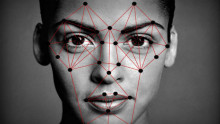Tech could finally help self-driving cars master snow
The research conducted at the country's National Laboratories is usually highly classified and specifically aimed at solving national security problems. But sometimes you get a swords-into-ploughshares moment. That's the case here, as a startup called WaveSense looks to apply technology originally developed by MIT Lincoln Laboratory to detect buried mines and improvised explosive devices for use in self-driving cars.












































































